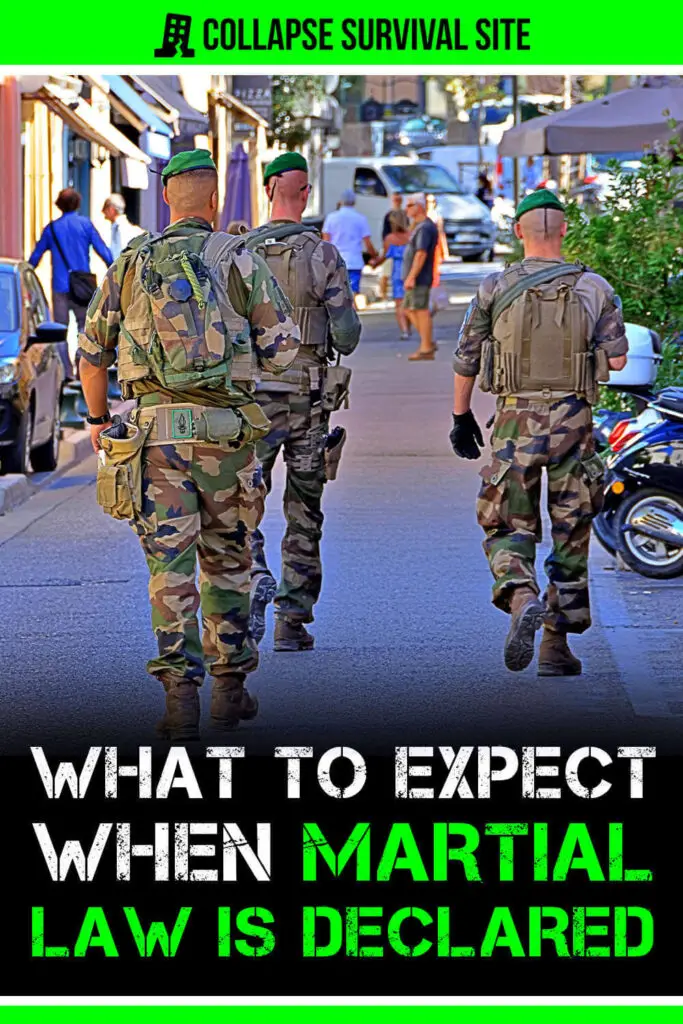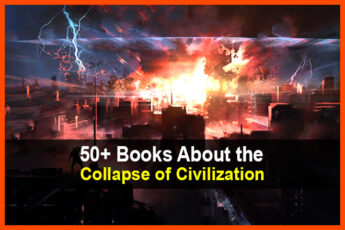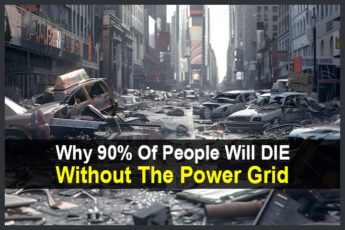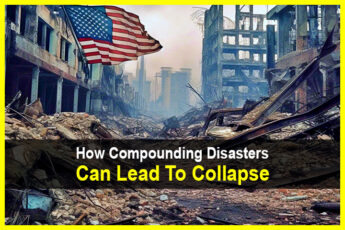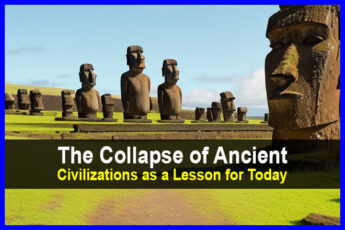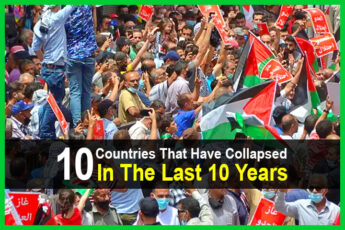Estimated reading time: 6 minutes
As society gets closer and closer to an all-out collapse, things will start to fall apart. Infrastructure will crumble, businesses will close, and institutions will break down. Eventually, things will become so chaotic that the government will likely impose martial law.
Theoretically, martial law is when the military takes over from civilian authorities because the civilian government is unable to do its job and protect the people. That is, however, quite different from what usually happens. Rather than the military declaring martial law, it is the civilian government that declares it, essentially implementing an authoritarian rule.
When Hurricane Katrina hit New Orleans in 2005, the city flooded. Government officials called for a general evacuation, but not everyone obeyed. Several thousand people stayed in the city, and some of them took advantage of the nearly empty city by looting. Such activity is common after any disaster, but the government’s response was not common.
Local authorities declared martial law in New Orleans and the surrounding area, suspending people’s rights, supposedly in an effort to protect them. I have never been able to understand how taking people’s rights away from them, which criminals will ignore, will help make anyone safer. But politicians think differently than you and I and are likely to do the darndest things in the name of “public safety.”
This example shows us one thing that is clear: regardless of any other consideration, our government, at all levels, believes they have the right to institute martial law whenever they see fit. Even if the federal government never declares martial law, state and local governments have that right, even without an executive order.
Besides, what could any of us do should the government decide to institute martial law? Are we going to rebel against the government for that? Are we going to organize ourselves as a militia and start a civil war? While some may speak of doing such things, the likelihood of them happening is very low.
Even so, any government office declaring martial law would need a good pretext for doing so. Otherwise, they would end up in court with a dozen different civic groups suing them for their actions. It would take something along the lines of major civil disorder to justify such action.
However, major civil disorder is going to become more and more common. So what can we expect if the government does declare martial law? Here are 10 things that could happen.
Want to save this post for later? Click Here to Pin It On Pinterest!
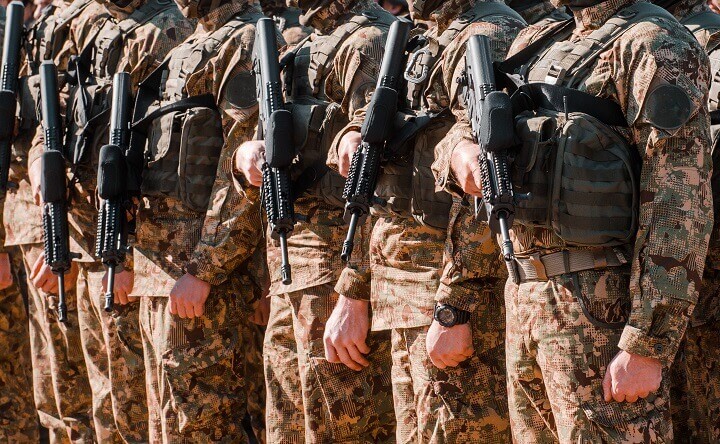
Curfew
Probably one of the most common restrictions under martial law is imposition of curfew on civilians. The justification for this is that criminals and those who would rebel against the government operate under the cover of darkness. Anyone caught breaking curfew could be arrested, although if there are no other charges, they would probably be released fairly quickly.
Fingerprinting and Identification
Martial law requires controlling the civilian population, which in turn necessitates some way of identifying who is there and whether they should be there or not. That means fingerprinting everyone and issuing them new identification.
Police, military and other officials can ask for that identification at any time. If it is not produced, the individual would be arrested and held until their identification could be verified.
Control Hospitals and Emergency Facilities
If martial law is declared because of disasters or crisis, there’s a good chance that medical and emergency facilities will be overrun. To deal with that, the government would take control of those facilities.
This could mean having guards at the hospitals, or it could go as far as government bureaucrats making decisions on who receives treatment. Anyone who was brought to the hospital with an injury inflicted in a fight would likely be investigated.
Curtailing of First Amendment Rights
It is typical during martial law for the government to take control of the media, controlling what information is put out to the public. With so much information being put out over the internet today, this could go as far as to cutting off or severely limiting internet access.
Travel Restrictions
Some martial law situations include imposing travel restrictions. This would be especially true if martial law was declared because of civil unrest or civil war.
The purpose of such restrictions would be to try and stop those with criminal intent from coming into the area or bringing arms into the area for illegal activity. Yet to do that would put restrictions on everyone, including those who are totally innocent.
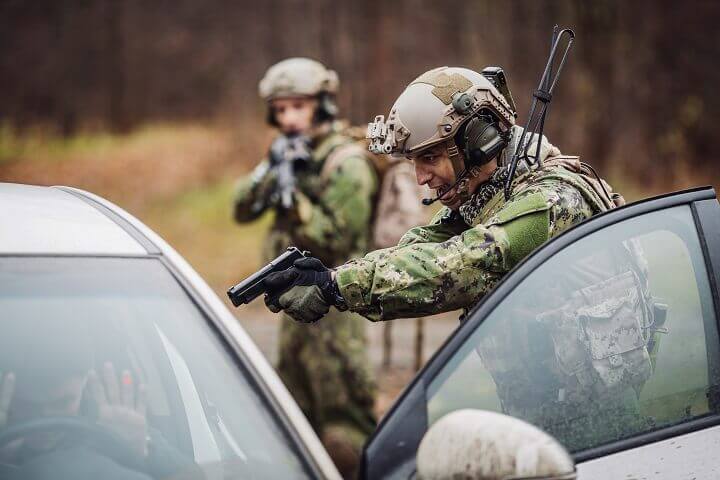
Confiscation of Firearms
Another highly likely occurrence during martial law would be the confiscation of firearms, with police or military going door-to-door for that purpose. This happened in the aftermath of Hurricane Katrina. In many cases, the officials doing the confiscating were taking guns from the hands of their hunting buddies.
By and large, governments do not trust guns in the hands of anyone they don’t directly control. When they start placing restrictions on citizens, one immediate concern is that the people will rebel against those restrictions. That makes confiscation of firearms an imperative, before people can organize to rebel.
Prohibit Sales of Certain Items
In an effort to curtail crime, officials may decide to shut down certain businesses or prohibit the sale of certain items, especially alcohol, ammunition, or firearms.
In the case of severe shortages, they might control the sale of motor fuel or other critical items which are needed by emergency services. This should not extend to other items, especially those which are necessary for day-to-day survival.
Possible Rationing of Resources
During World War II, the federal government instituted rationing for a number of war-critical materials, including food.
While only the state of Hawaii was under martial law, the rest of the country may as well have been. The country was on a war footing, and the government was concerned about spies and saboteurs from both our enemies and our supposed friends.
Possible Confiscation of Food for Redistribution
In severe circumstances, the government might go as far as confiscating food and other critical items for redistribution.
While the executive order that allows this at a federal level is not very specific, the DHS probably wouldn’t be interested in preppers’ stockpiles, but rather in wholesale stocks of food and other supplies that are necessary. Should things get so bad that the DHS is knocking on preppers’ doors to get their stockpiles, it will probably be too late, as others will have probably stormed those houses first.
Commandeer Businesses
Finally, the government has the right to commandeer businesses, especially when national security is at risk. During World War II, much of American manufacturing was turned to war production. While the government contracts were lucrative, the businesses really didn’t have much choice.
Like this post? Don't Forget to Pin It On Pinterest!

